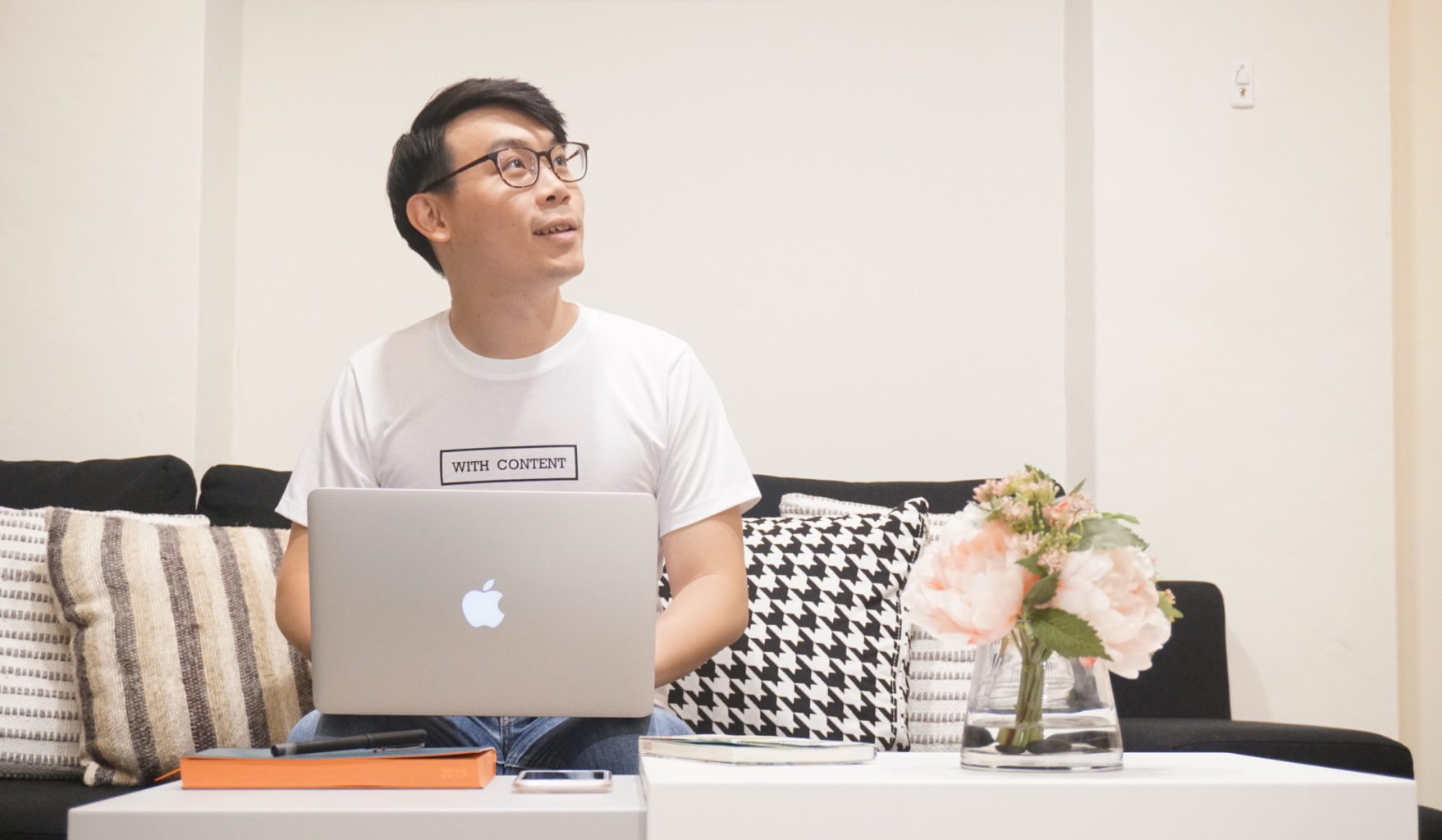Business as mission. What an odd term! While the former is commonly associated with “worldly” pursuits such as fame and fortune, the latter brings to mind “holy” work done in a cross-cultural setting – often beyond the borders of one’s country.
In our years spent serving in the youth ministry of our church, Sengkang Methodist Church, Jan and I have had many conversations with young people who were uncertain of what they should do upon graduation. Many of them, hearts filled with a burning desire to serve God, wonder if they should become a pastor, ministry worker, or even a missionary. After all, these are the “holy” vocations – right?
At first, we responded with joy! Of course, it was great that they wanted to serve God in their work. After many conversations, however, we realized that many of them were considering the path of a full-time ministry worker not because they were called to it, but because they couldn’t think of any better way to serve God in their lives.
Utterly meaningless?

In the early days of my career, I remembered having that same sinking feeling frequently – the feeling that what I was working on was “utterly meaningless,” as Solomon bemoans in Ecclesiastes:
The wind blows to the south
and turns to the north;
round and round it goes,
ever returning on its course.
Sure, I was having fun doing something I enjoyed: writing stories.
Sure, I was earning prestige as a journalist for one of the top technology media websites in Asia.
Sure, I was drawing a decent pay, with a clear ladder of progression to boot.
But I continued to feel unsettled, even as I moved jobs and climbed the career ladder. Just as how Thanos questioned the Avengers in the recent movie, I questioned myself almost daily: “I ask you, to what end?”
I felt myself sliding into an unhealthy, fractured routine: getting my spiritual boost on Sundays, and then returning to the “real world” for the rest of the week. I wasn’t able to live out my faith in my work – it just didn’t feel relevant, much less holy and pleasing to God.
Business doesn’t immediately come across as “meaningful” to the secular eye, let alone to someone searching for some way to serve God in their lives. It didn’t to me, either – at first. In fact, recent large-scale scandals in the business world – think Enron or Theranos – might have even skewed that perception to the other extreme: that business, with its tendency towards profiteering and doing whatever it takes to succeed, is inherently evil.
After studying the life of Paul and starting our own business, however, we’ve come to a point where we strongly agree with the words of Mark L. Russell, author of The Missional Entrepreneur: Principles and Practices for Business as Mission (emphasis mine):
“all followers of Christ can and should be on mission with God […] Being missional is about living in a state of being that is at the center of God’s mission wherever you are.”
In other words, you don’t need to be a holder of a Bachelor of Theology degree, or a full-time ministry worker, to do God’s work in the world. Every Christian should be missional – and a person who starts businesses in order to live out that mission is a missional entrepreneur.
In the Bible, we have a perfect example of someone who exemplified this concept: a tentmaker named Paul.
Tentmaking in Paul’s Time
Back in the day, Paul was in the business of making tents.
That’s right – one of the greatest apostles of all time chose to earn a living making and selling tents, rather than rely on support from the church or Christian organizations.
Today, tentmaking refers to the act of supporting oneself in another culture by engaging in secular vocations – not necessarily making tents – in order to make known the reality of Jesus Christ and build his church (paraphrased from Desiring God).
Why would Paul choose to do so? Wouldn’t it be better to simply raise the funds necessary for his daily needs, and then focus completely on preaching the Word?
The answer lies in 1 Corinthians 9:20-22(emphasis mine):
²⁰To the Jews I became like a Jew, to win the Jews. To those under the law I became like one under the law (though I myself am not under the law), so as to win those under the law. ²¹To those not having the law I became like one not having the law (though I am not free from God’s law but am under Christ’s law), so as to win those not having the law. ²²To the weak I became weak, to win the weak. I have become all things to all people so that by all possible means I might save some.
Paul’s strategy was clear. Through his work as a tentmaker, he would be able to create connections with and befriend the very people whom he was reaching out to. As John Piper puts it, as a tentmaker, “the product or service he [or she] is providing is always secondary to the effect he [or she] has on people’s lives through his [or her] work.” The business gave Paul an appropriate platform to impact the lives of the people around him.
That said, in order to be recognized amongst his peers, Paul would certainly have needed to first become an excellent tentmaker by creating and selling high-quality tents. The business is not just a “front” for the gospel message, but is a critical part of it.
A platform to reach the unreached.
To Chiang Mai

We first visited the lovely city of Chiang Mai five years ago. Back then, we came across only a handful of tourists and digital nomads – with the exception of bustling city center Nimmanhaemin – and fell in love with the peace and quiet, lived out through the gentle locals we chatted with.
And as we prepared to return to Singapore, we felt a prompting, a light tugging on our heartstrings – the first of many callings to return to the Buddhist-majority country to serve Him and His people there.
Fast forward to 2018, and God double-confirmed our mission over a two-month stay in Chiang Mai. We met up with missionaries and local leaders from Youth With A Mission (YWAM), Methodist Missions Society (MMS), and Shine Forth Methodist Church. We visited cafes and guesthouses, and chatted with their owners.
At the end of it, our mission was clear: to build platforms to employ, empower, and reach the urban Thai in Chiang Mai.
Initially, we considered setting up a guesthouse as our first platform.
Why a guesthouse? We felt that a hospitality business would be a great way to demonstrate and show God’s love – both to staff and visitors alike.
Having traveled substantially over the years, we know how much of a difference returning to a beautiful room and caring host can make to a trip. Hospitality exemplifies the very nature of God’s unconditional, warm, and even excessive love for us. It is also one of the many strengths of the Thai people, who are by nature friendly and hospitable.
That said, neither of us have any background in hospitality – we’ve never worked in a hotel before. Setting up a guesthouse would also require substantial capital upfront, which we currently do not have.
Our plans as of now

After spending some time praying and seeking God’s direction, we decided to utilize the skills and platforms that we currently have as a starting point instead.
A plan we had for our content marketing agency, With Content, was to double down on our visual content service offerings. In our research, we discovered that there were many talented graphic designers in Chiang Mai. So we’re putting two and two together, and taking the first step in reaching the community by working with local freelance designers.
At the same time, we’re actively looking out for clients in Bangkok, too.
As this happens, we’re also exploring ways to establish and expand a local manufacturing business. This business was started as a way to employ and support women from the nearby villages who, due to their circumstances, are unable to leave their homes to find work in the city.
A journey of faith

Clearly, we’re entering into new territory (quite literally) and have a lot to learn. We’re not sure how things will turn out, but as a local missionary encouraged us to do, we’ve decided to step out in faith and leaning entirely on God to lead us every step of the way.
As we go along, we want to share our learnings – what worked and what didn’t – with you. We hope to spark the curiosity of more Christians in missional entrepreneurship, and inspire some to take the leap just as we are doing now.
So if you are interested (and we hope you are!), you are very welcome to follow us on our journey by signing up for our newsletter here: https://tinyletter.com/jayndee




